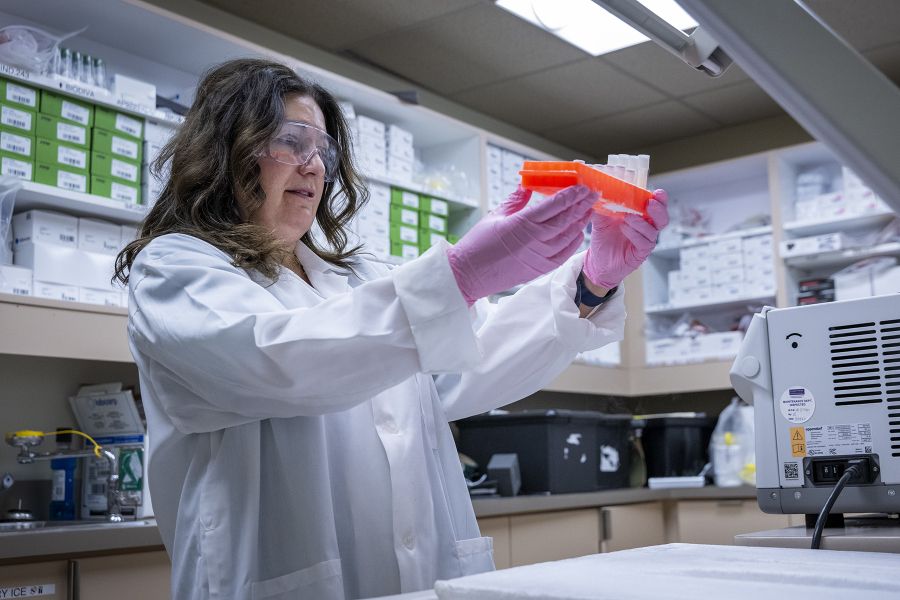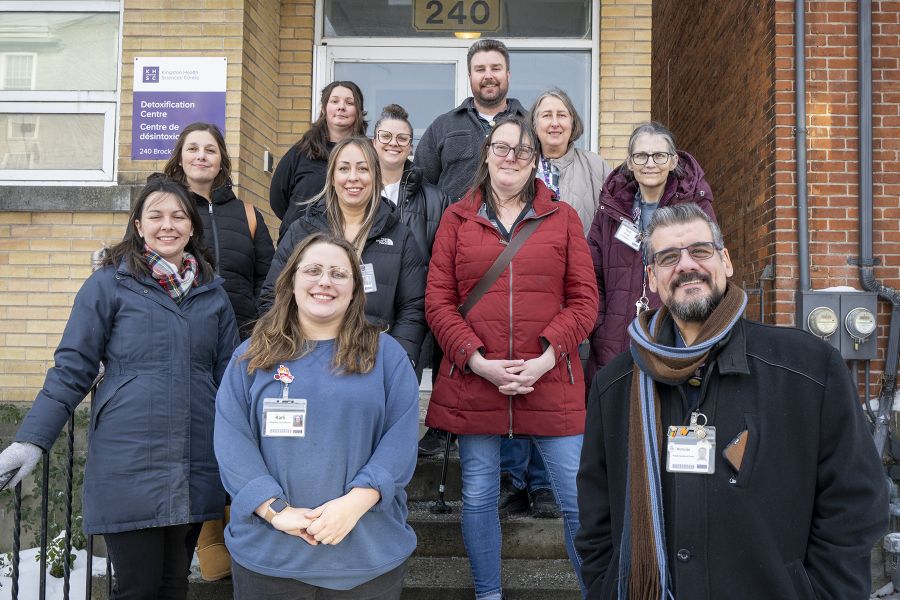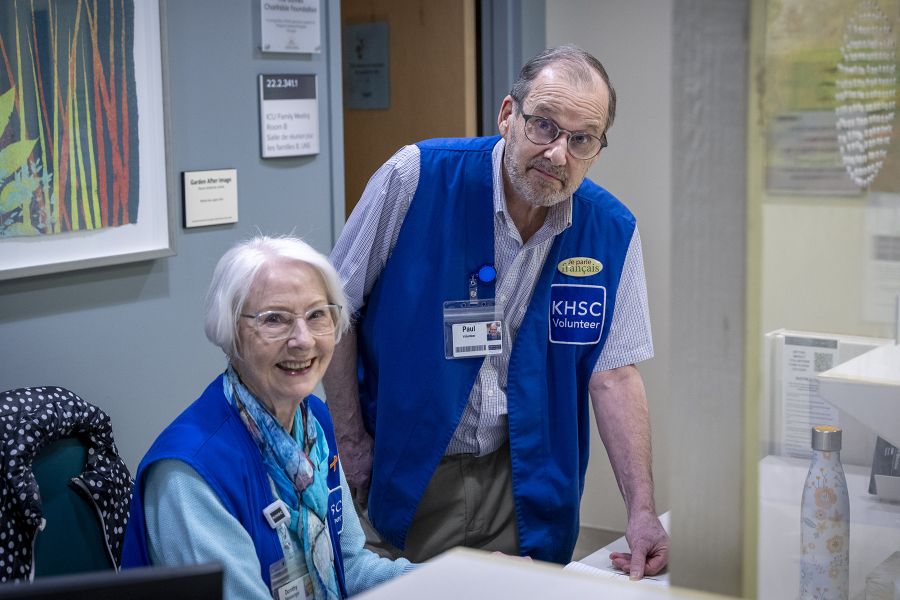Effective immediately masking is required for everyone when present on all inpatient units, in the Emergency Department (ED), the Urgent Care Centre (UCC), and the Children’s Outpatient Centre (COPC).
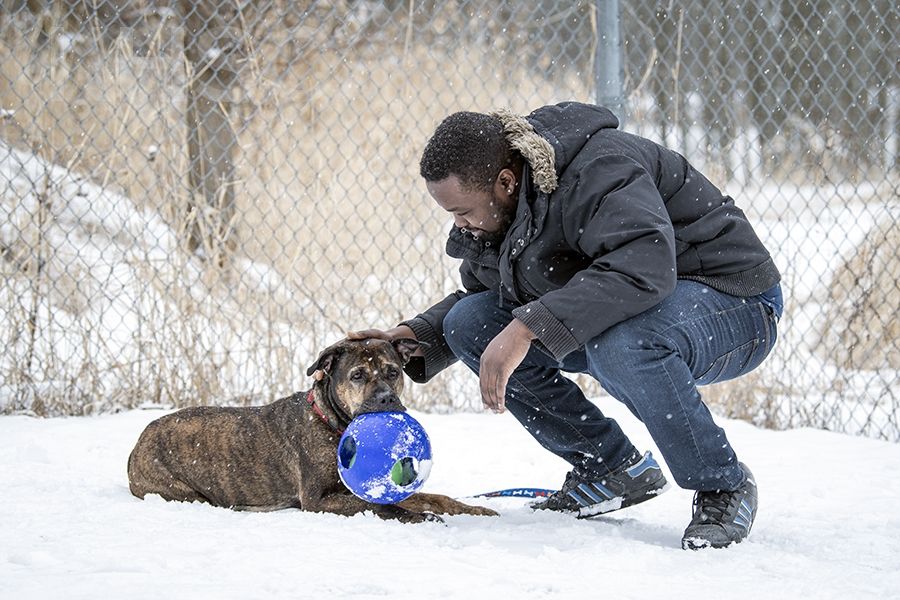
Out of a heartbreaking tragedy, the suicide death of a 21-year-old son, brother and friend, has come a heartwarming initiative involving the Quinte Humane Society that supports people who have experienced a serious health issue called psychosis that affects the brain and significantly changes the way a person thinks and feels.
After Nathan died almost two years ago, his family and friends honoured his memory by donating over $3500 through the University Hospitals Kingston Foundation to Heads Up!, an early psychosis intervention program for southeastern Ontario based at Kingston Health Sciences Centre (KHSC). Nathan was a client of the program’s district office in Belleville. In addition to the main office in Kingston, other satellite offices are located in Brockville, Napanee and Smiths Falls.
With a portion of the money raised, Heads Up! has sponsored one cat and one dog enclosure at the Quinte Humane Society in Belleville, and has made caring for and socializing with the animals a part of the therapeutic programming offered to clients.
While no one knows for sure what causes psychosis, scientific evidence suggests genetics, traumatic experiences, and the misuse of substances like marijuana and crystal meth can all contribute to the development of psychosis, which can occur suddenly or gradually.
“What we do know is that if we can detect psychosis early, then people have the best chance of a successful recovery,” says Dr. Mohammad Habib, a psychiatrist with KHSC’s Heads Up! program. “Changes to look for include a person’s inability to understand what’s real and what’s not, and a loss of social interaction skills.”
Once a diagnosis has been made, a treatment plan put in place, and psychotic symptoms begin to subside, the group activities offered by Heads Up! are important opportunities for people to socialize, and find enjoyment in simple ways, including being around cats and dogs.
“Helping someone or an animal that needs your help is healthy to do when you can,” says Tammy Zimmerman, a registered nurse and case manager with the Heads Up! program in Belleville. “It teaches us to put ourselves in another’s shoes or paws and care about what happens to them.”
Heads Up! clients who will have the Quinte Humane Society initiative be a part of their health care plans will receive volunteer training to learn how best to care for the animals. They will also learn how to assist with any specific training the animals need that will help them get adopted sooner.
Five cats and one dog that have been in the enclosures sponsored by Heads Up! have already been adopted. Currently there is a three-year-old cat named Kitty for adoption in one of the Heads Up! enclosures.
“Sometimes animals can be easier to be around and relate to than people, which is one of the reasons why I think this partnership will be successful for our clients,” says Zimmerman. “It will serve as a safe place to have new and fun experiences, and develop different views.”
After an unexpected encounter with a kitten, Beth, one of the Heads Up! clients shared that she didn’t consider herself a ‘cat person,’ but was pleasantly surprised when the kitten responded to her invitation to play and felt good about holding the kitten in her hands.
Nathan would have enjoyed Beth’s reaction, and would have approved of this initiative wholeheartedly. He loved cats. And he was always willing to help others, especially with their math work, something he started in high school and continued when he attended university for civil engineering.
“We are so pleased that through this initiative, he can continue to help people,” says Nathan’s mom Bev. “We will always be so proud of the person Nathan was and what he accomplished in his short life.”
Referrals to Heads Up! can be made by anyone, including family, friends, family doctors, schools or people can refer themselves. Approximately 250 referrals are made each year to the program and there is no waitlist to participate. Each satellite office is staffed by a nurse, social worker and occupational therapist. A psychologist and psychiatrist support the program through one-on-one and group therapy and with medication management.
Desperate feelings may lead to suicidal thoughts in some people who first experience symptoms of psychosis. It’s important to share these feelings with people who can help you follow a crisis plan and stay connected to what gives your life meaning and purpose.
For more information, including the program’s referral form, please visit Heads Up!
If you wish to support this or other mental health and addiction programs, donations to Kingston Health Sciences Centre’s Mental Health and Addiction program can be made through the University Hospitals Kingston Foundation.
Gallery
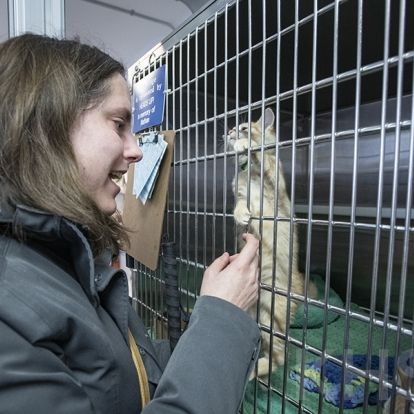
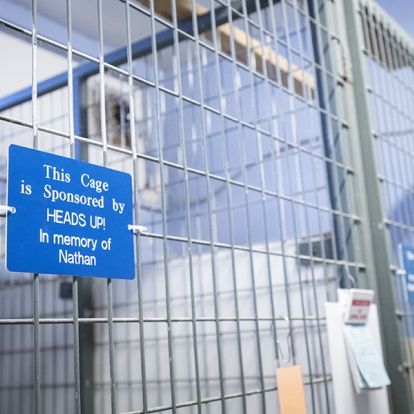
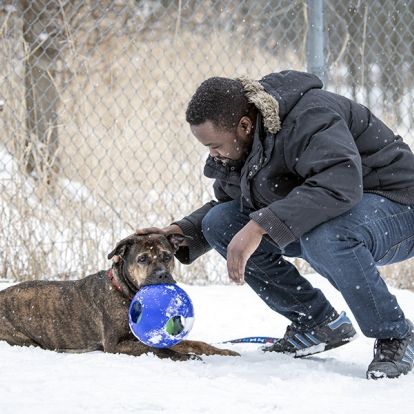
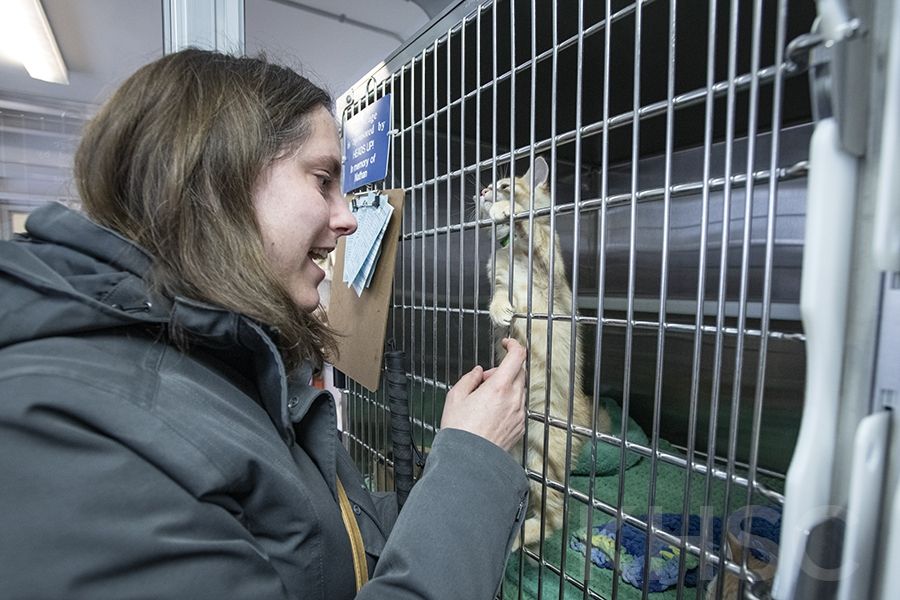
Caring for and socializing with the animals at the Quinte Humane Society is a part of the therapeutic programming offered to Heads Up! clients.
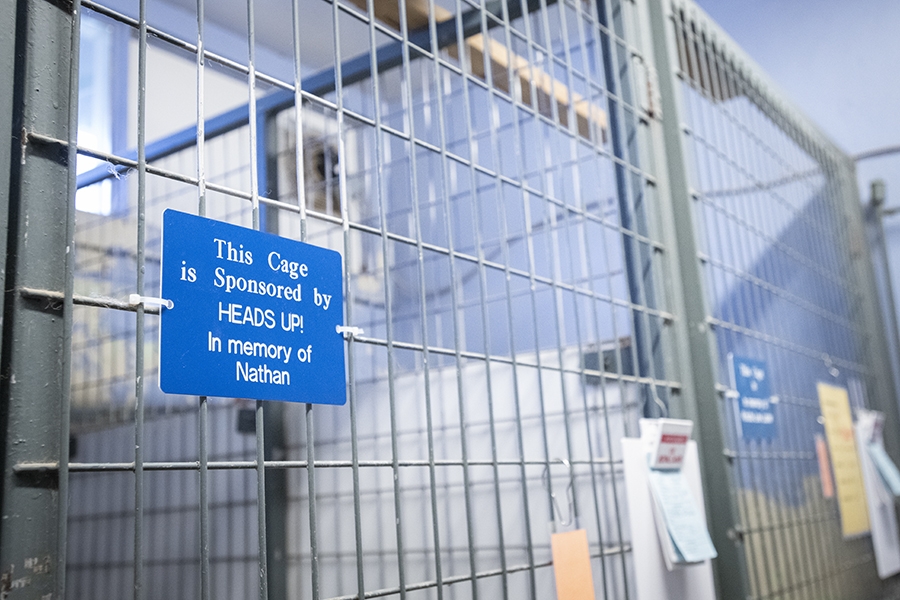
Nathan's family and friends honoured his memory by donating over $3500 through UHKF to Heads Up! A portion of the money raised supports this initiative between the program and the Quinte Humane Society in Belleville.
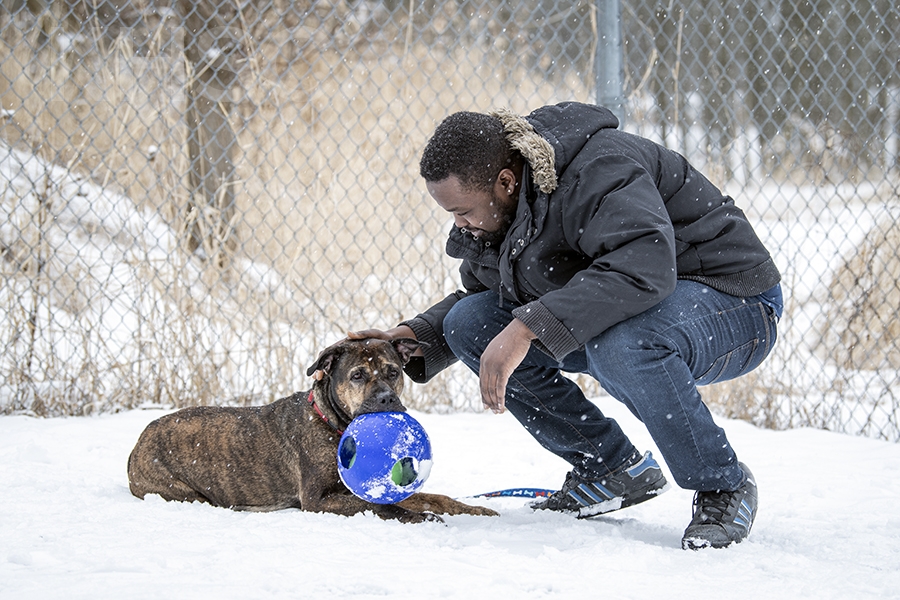
“Helping someone or an animal that needs your help is healthy to do when you can,” says Tammy Zimmerman, a registered nurse and case manager with the Heads Up! program in Belleville.

